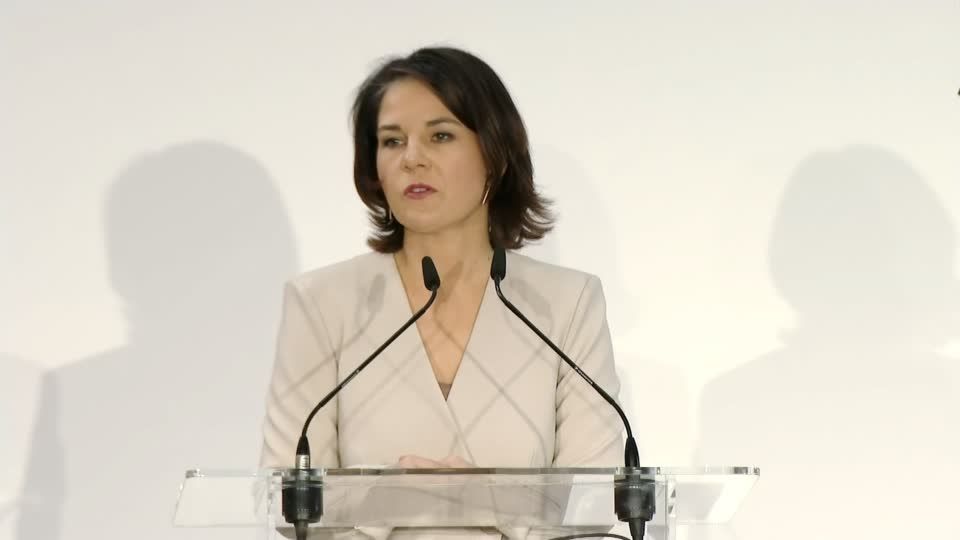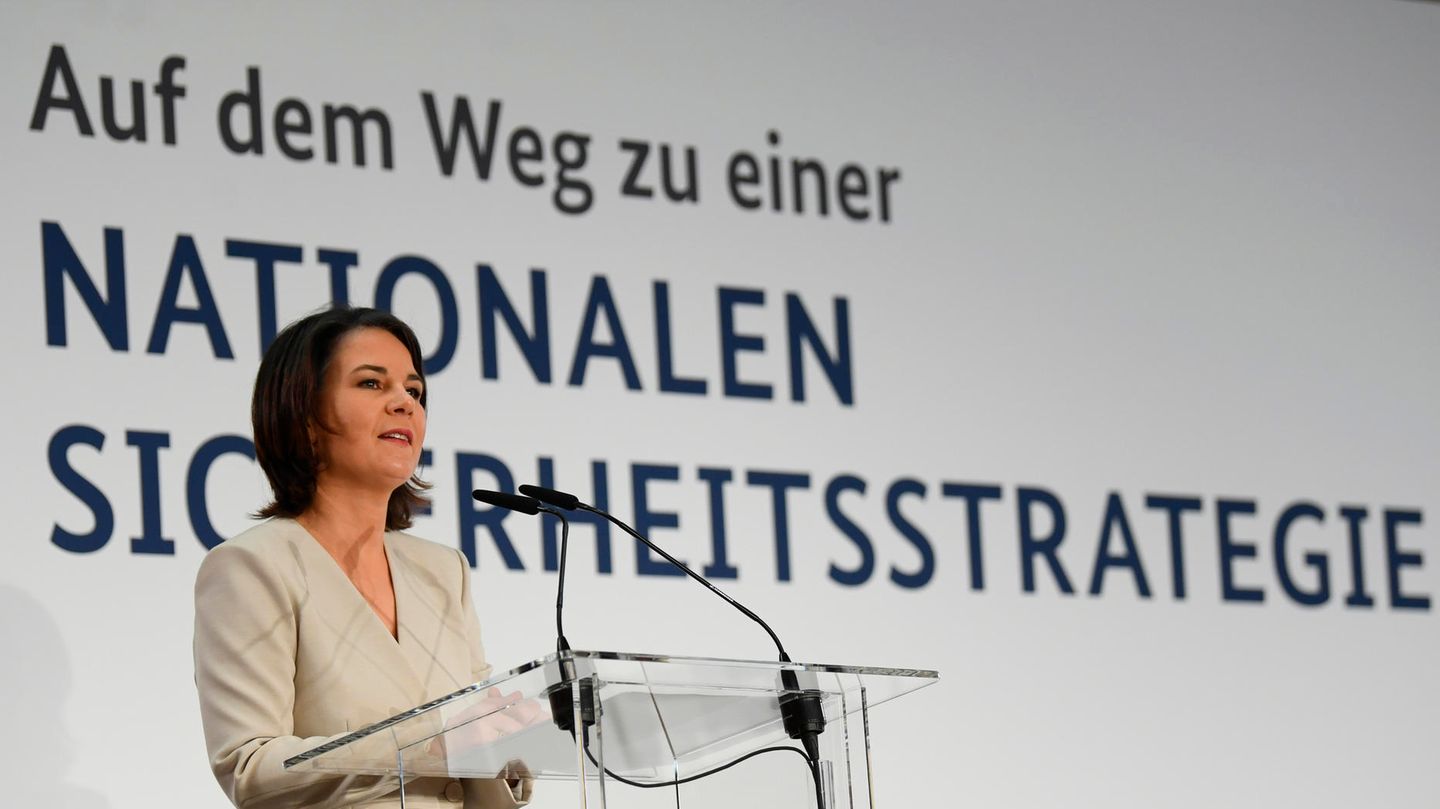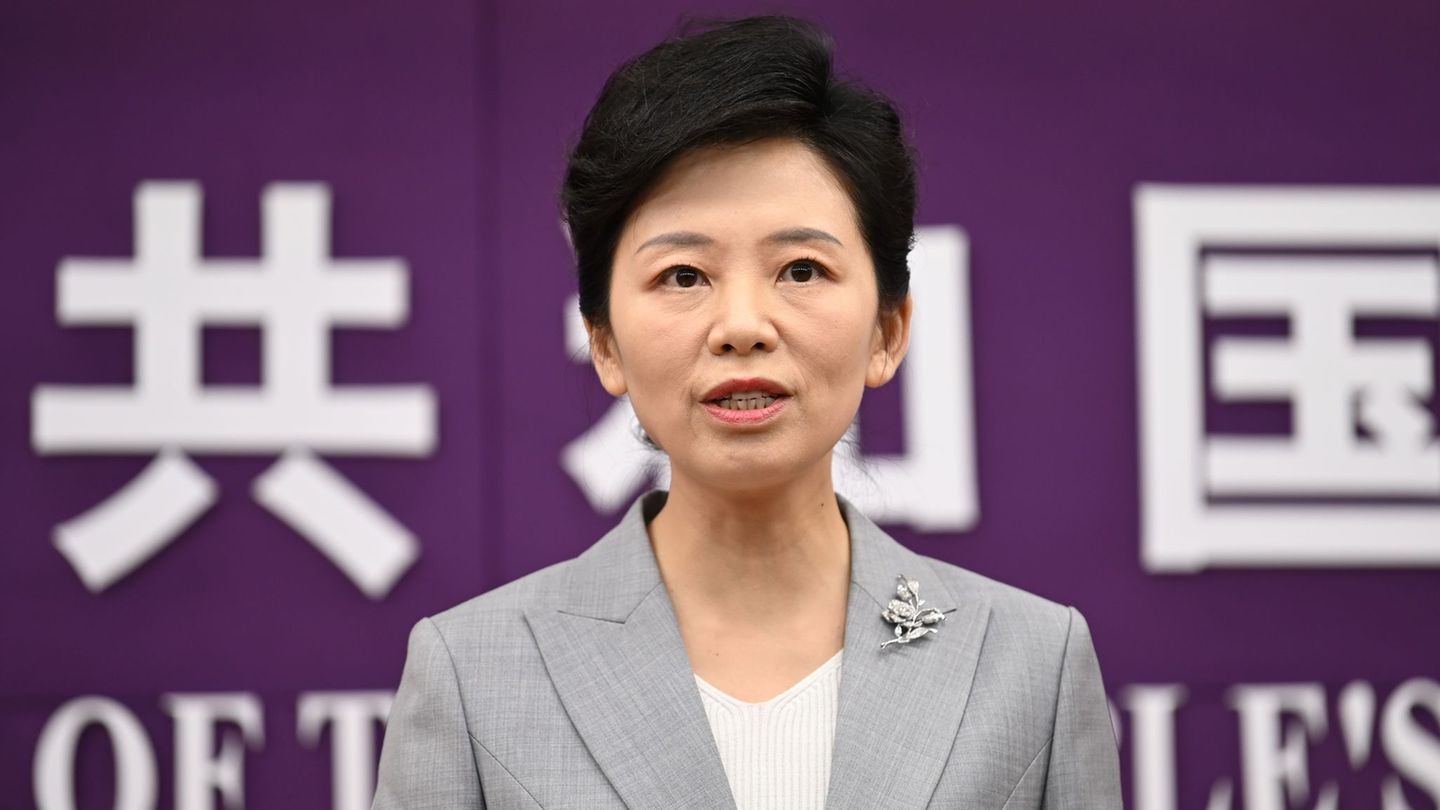The war in Ukraine shows it clearly: Germany needs a new security concept. The strategy is to be developed with the participation of several ministries. Foreign Minister Annalena Baerbock has outlined the key points.
“You feel a longing that we probably haven’t felt for a long time – and maybe my generation never really felt it: a longing for security.” Foreign Minister Annalena Baerbock, 41, has been through weeks of war diplomacy, but it is still strange that Germany has to make more efforts to protect its military security than before. Nevertheless, there should and will be a new national security strategy, which should not only be developed by the Federal Foreign Office, but across ministries.
Russia’s aggressive approach is clear: “No country, not even Germany, can be neutral on questions of war and peace, on questions of justice and injustice,” said Baerbock on Friday at the start of work on the security concept. This is particularly true in view of German history. The German guilt for war and genocide means the obligation “to stand by those whose lives, freedom and rights are threatened,” said the Green politician. The war waged by Russian President Vladimir Putin, which violates international law, confronts us with a new reality in terms of security policy.
The Foreign Minister already outlined possible cornerstones for the new security strategy on Friday. A few points would have been unthinkable for a top Green politician not long ago.
Strengthening of NATO’s eastern flank – alliance defense
To strengthen NATO’s eastern flank, Baerbock said: “The previous tripwire logic, which signals through minimum presences in the Baltic states and Poland that an attack on one NATO country is an attack on all, will no longer be sufficient in its current form.” The latest reinforcements would have to be designed for the long term, and military exercises would have to reflect the new realities. The entire eastern alliance area is subject to a new threat.

nuclear deterrent
In view of Putin’s threats with nuclear weapons, NATO’s nuclear deterrence must remain credible, Baerbock demanded. The goal remains a nuclear weapons-free world. However, an honest debate about the prerequisites for disarmament must be held with the partners. “You can’t do that with unilateral demands on our western allies.” Real disarmament will only happen “if all nuclear weapon states take credible steps”.
Strengthen defensiveness and the ability to form alliances
The decisive factor for Germany’s ability to act is the ability to defend itself in the alliance, said Baerbock. This means both the ability and the will to defend yourself. For a long time, defensiveness was a word that you didn’t just put into your mouth, said the ex-Greens boss. But she is now convinced: “Our defense decides our security.”
Own strategy towards China
Looking at China and its “Belt and Road” initiative with trade and infrastructure initiatives in Africa, Asia and Europe, Baerbock said investments in infrastructure are also relevant to security. You can only act independently if you are not completely dependent on others. In view of China’s investments in the power supply in the Indo-Pacific region, questions of sovereignty and territorial integrity also arose there. The federal government is also working on a new China strategy.
Energy dependency and climate crisis
Germany must become more independent of energy supplies, but at the same time “must not slide into a new dependency on other countries,” said the minister. The climate crisis is exacerbating crises between countries in the African Sahel region, for example, with food insecurity and migration. That is why climate foreign policy is an integral part of the new security strategy.
Strengthening the European defense industry
The former Green Party leader called for the European defense industry to be strengthened and become more effective. The EU has six times as many weapon systems in use as the USA. “We have to overcome this fragmentation,” said Baerbock.
cyber threat
The greatest challenge is the threat of cyber attacks as a central component of modern warfare, said Baerbock. “What used to be an attack on a gas pipeline with a bomb or a rocket is now a hack on hospitals.”
The process of a new security strategy
The new security strategy is to be developed under the leadership of the Federal Foreign Office together with other ministries, the Bundestag and national and international partners and linked to corresponding efforts at EU and NATO level. The traffic light coalition agreement states: “In the first year of the new federal government, we will present a comprehensive national security strategy.” The time frame is thus set, the war in Ukraine should significantly accelerate implementation.
Source: Stern
David William is a talented author who has made a name for himself in the world of writing. He is a professional author who writes on a wide range of topics, from general interest to opinion news. David is currently working as a writer at 24 hours worlds where he brings his unique perspective and in-depth research to his articles, making them both informative and engaging.




